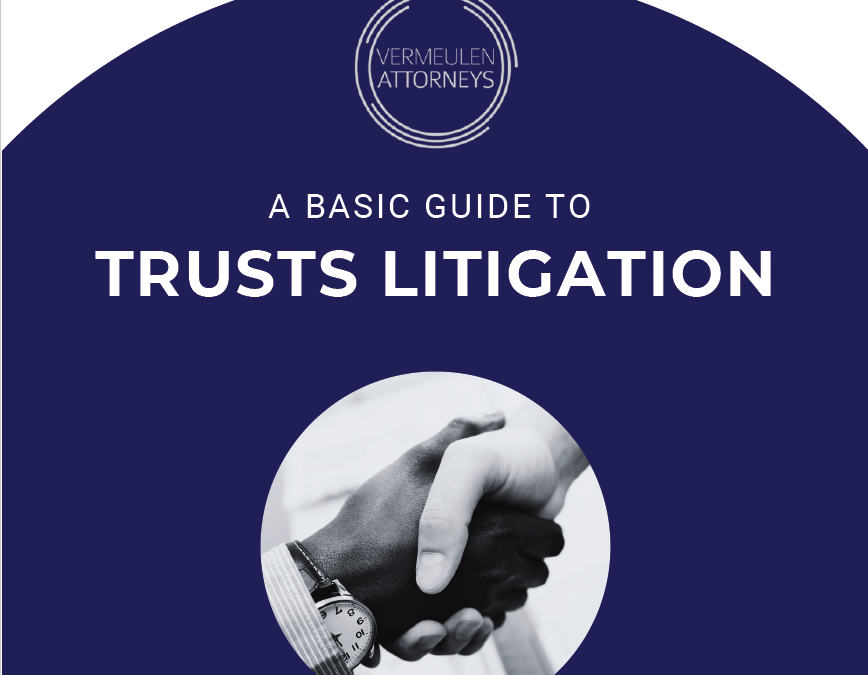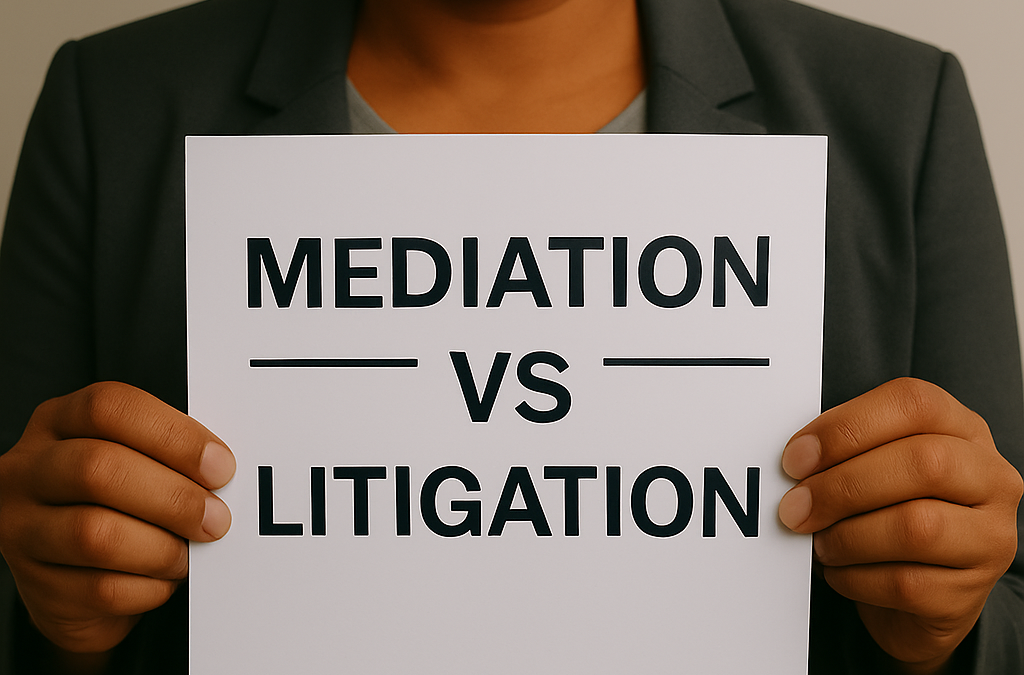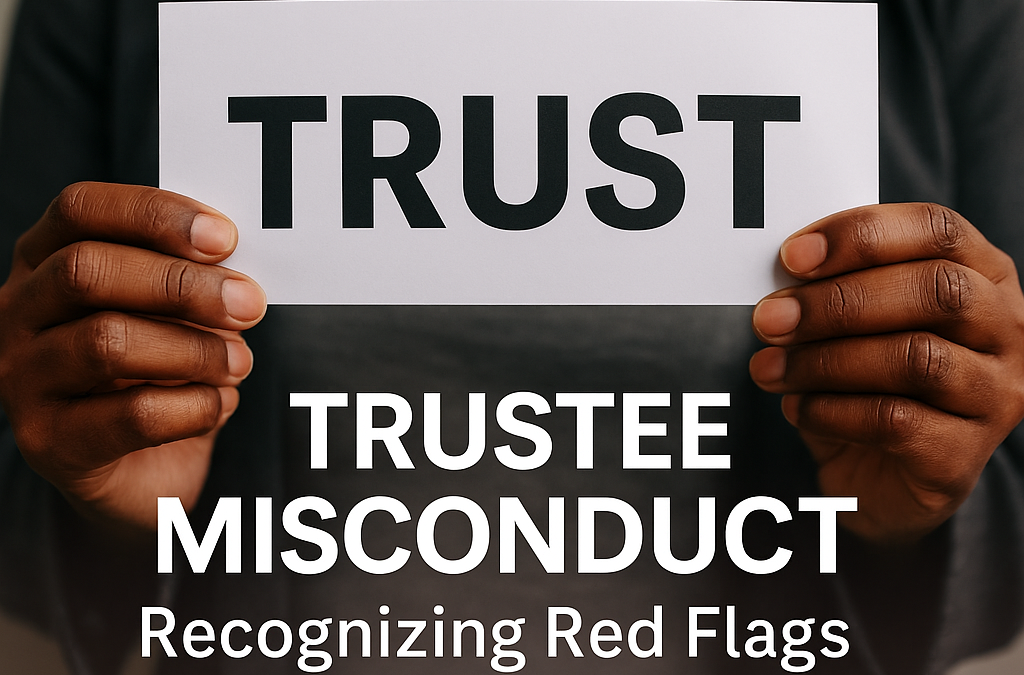What Constitutes Executor Misconduct in South African Estates?
Executor misconduct occurs when the executor of a deceased estate acts in ways that harm the estate or its beneficiaries. This may include dishonesty, negligence, conflict of interest, or failing to carry out legal duties. Executor misconduct can derail the administration of an estate, leading to financial losses, family conflict, and legal disputes.
It is essential to understand beneficiary rights in executor misconduct cases — and how to challenge executor misconduct legally and effectively.
Understanding the Executor’s Role — and Duty of Care
An executor is the person nominated in a will or appointed by the Master of the High Court to administer a deceased estate. Their core responsibilities include:
Locating and securing assets (e.g., property, accounts, valuables)
Paying off outstanding debts and taxes
Distributing remaining assets to beneficiaries in accordance with the will or intestate laws
Importantly, executors have a fiduciary duty — a legal obligation to act honestly, with diligence, and in the estate’s best interest. Breaching this duty is grounds for removal and legal action.
Common Executor Mistakes and Red Flags
Even well-intentioned executors can make serious errors. Below are examples of executor negligence, executor self-dealing, and other forms of executor misconduct that beneficiaries should watch for:
1. Excessive Delays in Estate Administration
Winding up an estate should typically take 6–12 months. Unjustified delays may indicate negligence.
2. Failure to Communicate with Beneficiaries
An executor refusing to respond to queries or withholding information breaches fiduciary obligations.
3. Asset Mismanagement
Selling property under market value, failing to maintain or insure assets, or neglecting investments.
4. Preferential Treatment of Certain Heirs
Favouring one heir over others is unethical and may constitute executor conflict of interest.
5. Unauthorised Personal Gain
Executor self-dealing cases include using estate funds for personal use, renting estate property to themselves, or charging unreasonable fees.
6. Ignoring the Will or Intestate Succession
Disregarding or misinterpreting the will’s instructions is a violation of the executor’s legal duties.
7. Failure to Lodge Legal Documents
Missing statutory deadlines or not submitting required documents to the Master’s Office.
These are all signs of executor wrongdoing that can escalate if left unchecked.
Real Examples of Executor Negligence
Executor negligence examples in South African case law include:
Allowing estate property to fall into disrepair
Delaying liquidation and distribution accounts without cause
Failing to pay SARS taxes, incurring penalties
Misallocating assets contrary to the will
These actions reflect a breach of fiduciary duty and can result in removal or personal liability.
Legal Rights of Beneficiaries Facing Executor Misconduct
If you’re a beneficiary experiencing misconduct, South African law provides remedies. You have the right to:
1. Request Formal Updates
Executors must supply reasonable information. Send a formal written request for an estate update.
2. Lodge a Complaint with the Master of the High Court
If no resolution follows, submit a complaint to the Master’s Office, which supervises executors.
3. Apply to Remove the Executor
The executor removal process involves an application to the High Court supported by evidence of misconduct, conflict of interest, or dishonesty.
These steps are vital when challenging executor misconduct in court or through administrative channels.
Misappropriation by Executor: A Serious Offence
One of the most severe forms of executor misconduct is misappropriation by executor — unlawfully using estate funds or assets for personal benefit. Examples include:
Transferring estate funds to personal accounts
Selling estate assets without disclosure or fair market value
Paying non-existent debts to related parties
This level of misconduct can result in criminal charges, executor removal, and full restitution.
Executor Conflict of Interest Red Flags
Be alert to conflicts of interest that may not be immediately obvious. Red flags include:
Executor is also a major heir and delays distribution
Personal loans from the estate to the executor
Failure to disclose relationships with estate creditors
These may be subtle forms of executor misconduct or breach of fiduciary duty.
The Executor Removal Process Explained
The executor removal process involves:
Gathering evidence (e.g., bank records, correspondence, valuation reports)
Lodging a complaint with the Master of the High Court
Filing an application to the High Court with affidavits from affected parties
Submitting proof of misconduct, negligence, or conflict of interest
Legal representation from an estate litigation attorney is crucial during this process.
The Role of Estate Lawyers in Executor Disputes
Experienced estate attorneys help beneficiaries:
Review executor conduct and fiduciary breaches
Communicate with the executor on your behalf
Draft complaints and court papers
Represent you in mediation or litigation
If you’re based in Roodepoort or Ballito, Vermeulen Attorneys offers trusted guidance to challenge executor misconduct and protect your inheritance.
Internal Resources
External Resource
Master of the High Court – South Africa (Official info on estate supervision)
FAQs: Executor Misconduct and Beneficiary Rights
1. What is considered executor misconduct in South Africa?
Executor misconduct includes any behaviour where the executor acts dishonestly, negligently, or against the interests of the estate and beneficiaries. This includes failing to communicate, delaying the estate process without cause, selling assets below value, or benefitting personally from estate funds. Such actions may also constitute an executor breach of fiduciary duty, which is grounds for legal removal and civil action.
2. What are the most common executor mistakes?
Common executor mistakes include missing deadlines for submitting estate documents, failing to notify heirs, paying debts without verifying claims, ignoring tax obligations, and misinterpreting the terms of the will. These errors can lead to significant financial loss for the estate and potential legal consequences for the executor.
3. What are signs of executor wrongdoing?
Red flags include unexplained delays, lack of transparency, refusal to share financial reports, selling estate property without consent, or denying beneficiaries their rightful inheritance. These may point to misconduct or even fraud.
4. What is an executor conflict of interest?
An executor conflict of interest arises when the executor stands to gain personally from estate decisions. Examples include renting or purchasing estate property, assigning estate income to themselves, or favouring one beneficiary over another. These actions could amount to an executor breach of fiduciary duty.
5. How do I prove executor negligence?
Executor negligence is proven through evidence such as ignored communications, incomplete estate accounts, late submissions to the Master, or declining asset values due to poor management. Documented proof strengthens a legal case for removal or damages.
6. What are examples of executor self-dealing?
Executor self-dealing occurs when the executor uses estate resources for personal benefit. Examples include transferring funds to their own account, undervaluing and purchasing estate property, or making decisions that benefit themselves or close associates at the expense of the estate.
7. Can an executor be removed for breach of fiduciary duty?
Yes. The court may remove an executor who has committed an executor breach of fiduciary duty, such as misappropriating estate assets, failing to act in the best interests of beneficiaries, or concealing key information. Beneficiaries can initiate this process through a High Court application.
8. What is the process for removing an executor in South Africa?
The executor removal process begins with submitting a complaint to the Master of the High Court. If the matter is serious or unresolved, beneficiaries can apply to the High Court with supporting evidence of misconduct, negligence, or breach of fiduciary duty. Legal representation is highly recommended.
9. What can I do if the executor is not communicating?
If the executor refuses to provide updates or share estate information, you can send a formal request in writing. If the silence continues, escalate the issue by lodging a complaint with the Master of the High Court or consulting an estate litigation attorney.
10. Can beneficiaries challenge executor misconduct jointly?
Yes. When multiple beneficiaries are affected by executor misconduct, acting together strengthens your legal position. A joint complaint or application for removal presents a united front and may be more persuasive to the court or Master.
11. What is misappropriation by an executor?
Misappropriation by an executor involves unlawfully taking or using estate assets for personal gain. This may include transferring money to personal accounts, selling assets without consent, or paying false claims. Such actions are serious and may result in criminal charges.
12. How long does it take to remove an executor?
The timeline for removing an executor varies. Complaints to the Master may take months to years to resolve. If a High Court application is necessary, it may take several months or even years, depending on the complexity of the case and court availability. Immediate legal advice helps expedite the process.
Take Action to Protect Your Inheritance
Executor misconduct can cost you time, money, and peace of mind. If you suspect mismanagement, conflict of interest, or self-dealing, don’t delay. Contact Vermeulen Attorneys today for expert legal support in estate disputes.

Cathleen Breedt Is A Director At Vermeulen Attorneys












